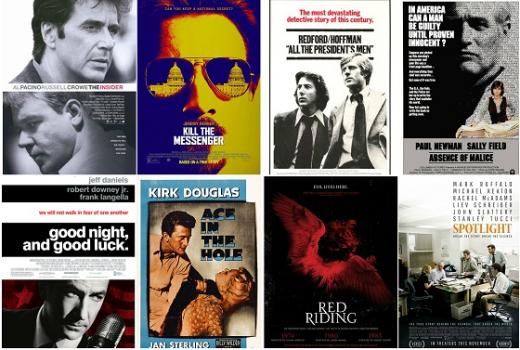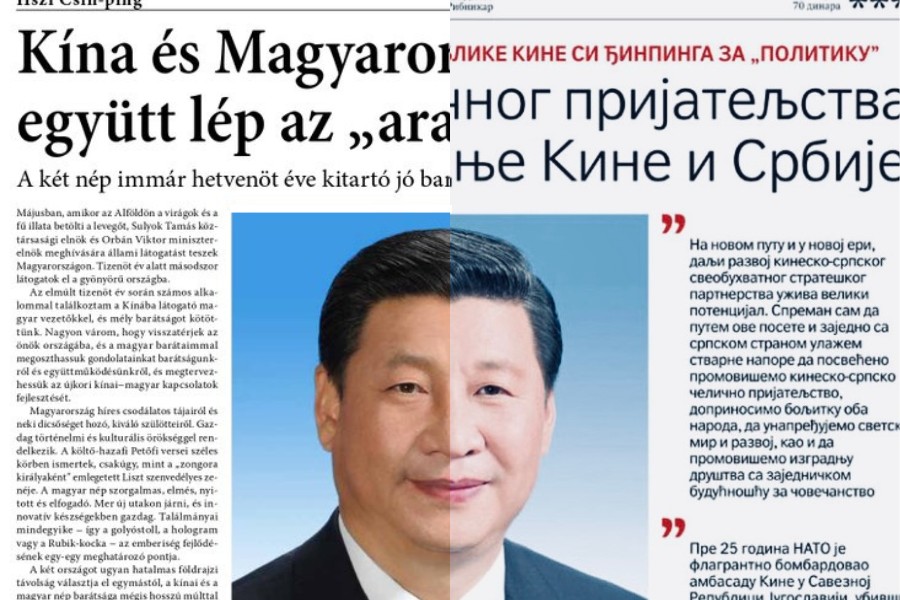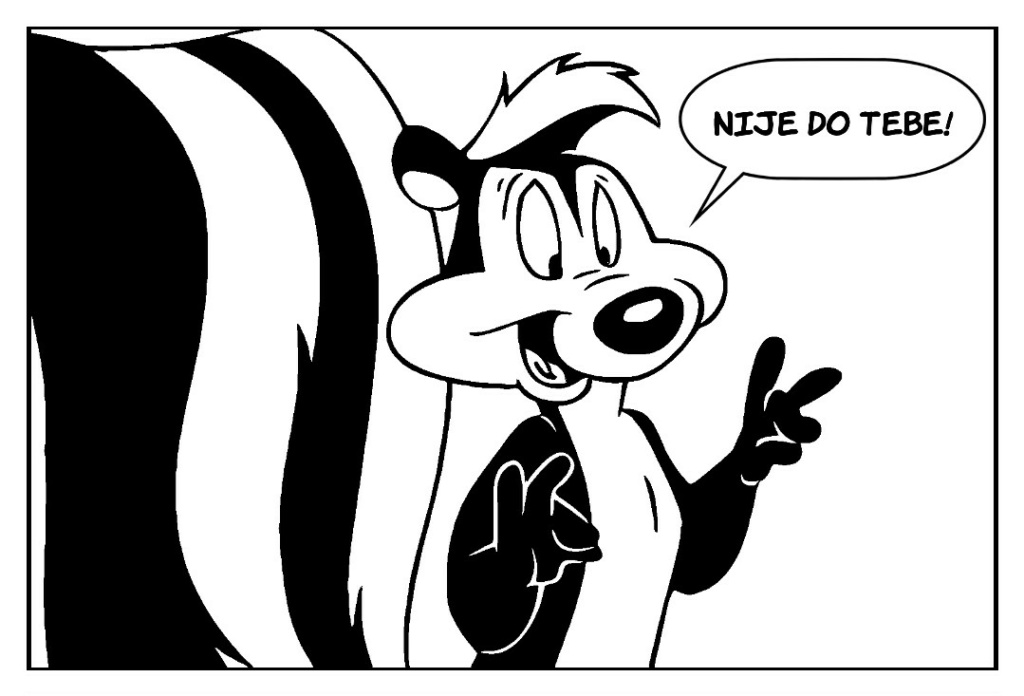KRIK, a Belgrade-based nonprofit that is part of the Organized Crime and Corruption Reporting Project (OCCRP), said that the smear campaign attempted to link the independent news outlet to Veljko Belivuk, the alleged leader of the Janjicari or Janissaries crime network. Belivuk was one of 17 people arrested last month on charges including murder and drug trafficking.
Several pro-government media groups ran stories this week claiming that KRIK has ties to Belivuk, with headlines alleging that the outlet was “Belivuk’s private media” and that it worked with criminals to endanger the president.
KRIK’s journalists have denied any connection with Belivuk.
Its journalists have reported on Belivuk, including on allegations that members of his apparent crime network previously had connections with the ruling party, and that President Aleksandar Vucic’s son had been seen socializing with Belivuk and members of the gang.
Serbia’s president has denied any connection between crime networks and his government, and accused KRIK of attacking his son, saying last year he would fight to “defeat their lies.”
Vucic and other officials, including the interior minister, have also accused the media of “attacking the president’s family.”
Linking KRIK’s journalists to a criminal network “is the most dangerous situation so far,” Stevan Dojcinovic, an award-winning journalist and editor-in-chief at KRIK, told VOA’s Serbian Service.
“Journalists are jeopardized when they are the subjects of media reporting. Because a person who wants to harm you may appear from nowhere,” Dojcinovic said.
The outlet’s journalists have been targeted before, including a break-in at the home of a reporter a few years ago, where belongings were searched through but nothing was taken. KRIK said at the time it believed it was an attempt to intimidate the media.
KRIK is one of the few independent news outlets in Serbia dedicated to investigating organized crime and its alleged ties to the government and ruling Serbian Progressive Party, and to report on apparent government corruption.
The media watchdog Reporters Without Borders (RSF) says the concentration of media ownership, “collusion between politicians and media,” and hostile rhetoric from officials, combined with impunity in attacks on journalists, make covering crime and corruption in Serbia a dangerous beat.
The country is a main trafficking route for organized crime networks, which increases the risk of violence and turf wars that can include attacks involving guns and explosives, according to the U.S. Overseas Security Advisory Council country report — a partnership between the State Department and private sector safety experts.
Dojcinovic said the current tensions in Serbia add to the danger for KRIK’s reporters.
“There is a war going on between two criminal clans in Serbia. They are killing each other,” Dojcinovic said. “In such circumstances they align us to one side, which is the most dangerous situation for a journalist, to be marked as an associate of a criminal group that is at war with another.”
Reports attempting to falsely link KRIK to the criminal network were condemned as “dangerous” by Zeljko Bodrozic, president of the Independent Association of Journalists of Serbia.
“No one who follows the public scene and the work of the KRIK editorial office can believe these untruths,” Bodrozic said in a statement Wednesday. “But the big problem is that a large number of citizens have access to the media that spread these heinous lies, which is why the safety of our brave colleagues who have been writing about corruption and crime for years is now dangerously endangered.”
Serbia’s Ministry of Culture and Information did not respond to VOA’s request for comment.
Serious threat
Smear campaigns and attempts to discredit journalists can led to more serious threats or attacks, media watchdogs told VOA Serbian.
“KRIK, as an investigative outlet specializing in organized crime and corruption, is especially exposed to such dangers,” said Gulnoza Said, head of the Europe and Central Asia program at the New York-based Committee to Protect Journalists.
“We have documented similar cases, including in Serbia, where we see a worrying trend of journalists being exposed to such campaigns. Politicians and government officials all over the world should encourage reporters to uncover corruption, organized crime and its impact on public life instead of hindering or discrediting their work,” she added.
Pavol Szalai, head of the European Union and Balkans desk at media watchdog RSF, described the harassment as troubling.
“Smear campaigns against journalists are often meant to design them as targets of further attacks,” Szalai told VOA Serbian, citing the case of Slavko Curuvija, the owner of Serbia’s first privately run newspapers, who was shot dead in 1999.
“He too had been accused of connections with the mafia before he was executed. RSF is very worried. We are calling on Serbian politicians including the culture minister to immediately publicly condemn this vicious campaign and, on the authorities, to increase vigilance as to the protection of journalists,” Szalai said.
The goal of such campaigns is to provoke a chilling effect, Szalai said, but added that they also promote solidarity among journalists.
“We have been alerted about this latest attack against KRIK from Serbia, but also by journalists from other parts of Europe. Solidarity and cooperation is also a way for Serbia’s independent journalists to resist the pressures and the possible chilling effect,” Szalai said.



 Filmovi o novinarima i za novinare
Filmovi o novinarima i za novinare Deset medijskih sporazuma za „zajedničku budućnost” sa Kinom, zemljom cenzure i progona novinara
Deset medijskih sporazuma za „zajedničku budućnost” sa Kinom, zemljom cenzure i progona novinara Silovanje ili cenzura: Na šta to smrdi Pepe le Tvor?
Silovanje ili cenzura: Na šta to smrdi Pepe le Tvor?
Ostavljanje komentara je privremeno obustavljeno iz tehničkih razloga. Hvala na razumevanju.